Idea by
Ching Ying Ngan, Mary Lynch-Lloyd, Maya Shopova
Collective Home Office
https://collectivebrain.herokuapp.com
Call for ideas 2020
Collective Brain
Collective Brain
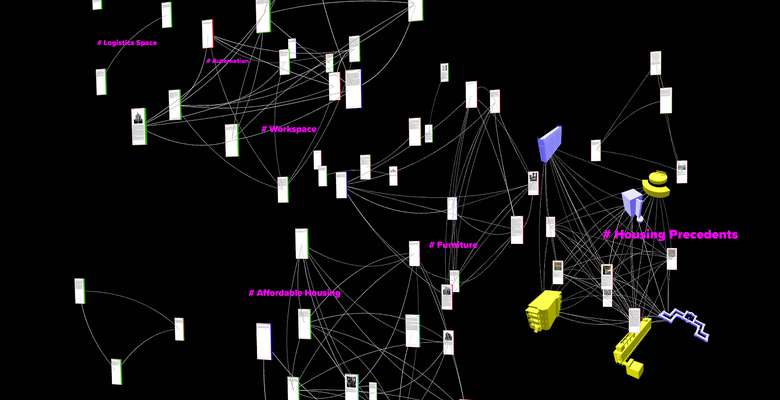
- Systemic changes
The Collective Brain promotes a vision of a future architecture practice that is diverse, distributed and non-hierarchical. It’s a device for design research that archives and shares knowledge, as well as a model for a practice that challenges old exclusionary and unsustainable labor models. It organizes individual research inputs into a visual-spatial network that reveals unanticipated links between ideas, disciplines and people. This collective language is a tool that allows an unsanitized design process, fraught with the productive friction of many voices working together, and nurtures a multi-authored architecture that invites both participation and critique. It is also an archive for a changing body of knowledge whose form reconfigures as it grows, with the ability to filter,be confronted by the unexpected, and easily share findings through automated publishing.
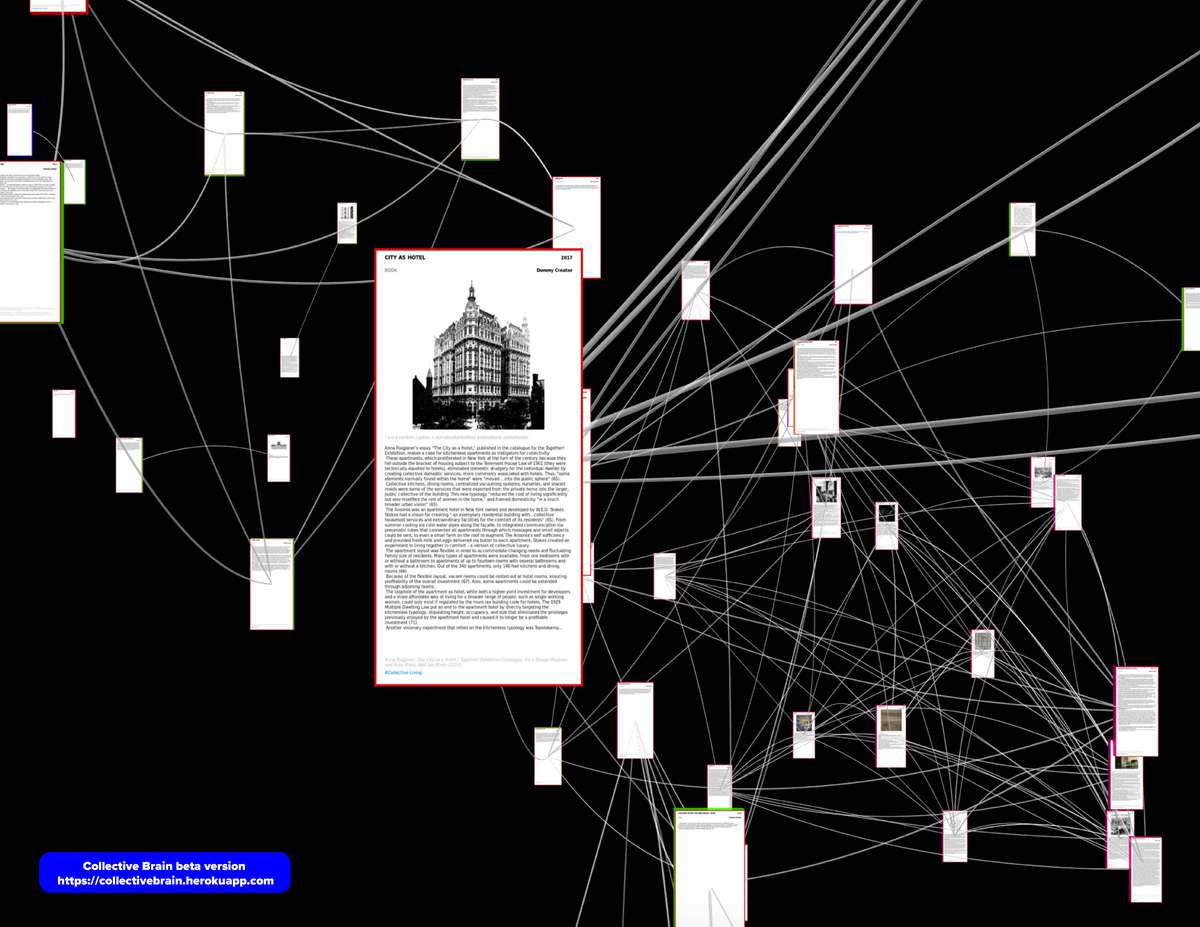
Collective Brain, beta version, https://collectivebrain.herokuapp.com
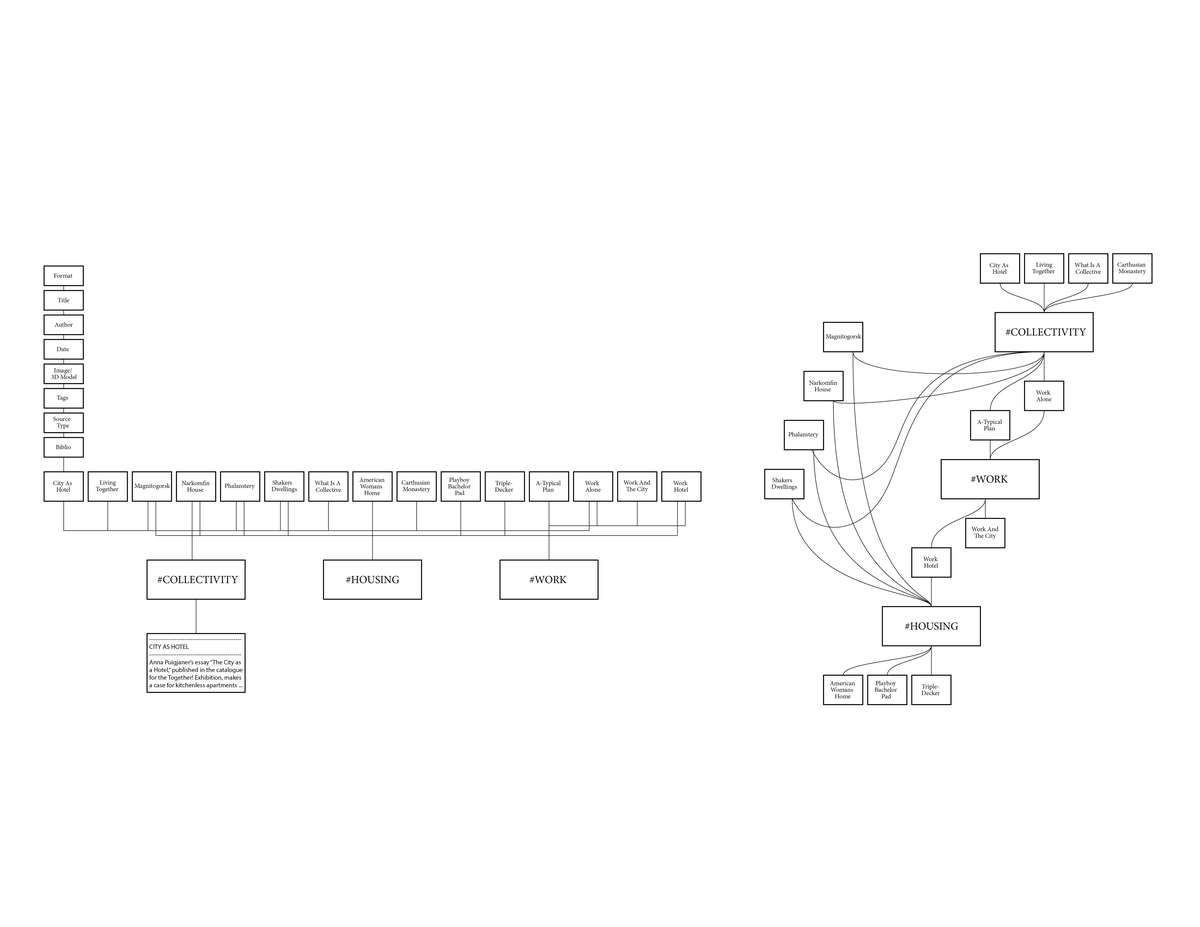
System diagram of Collective Brain
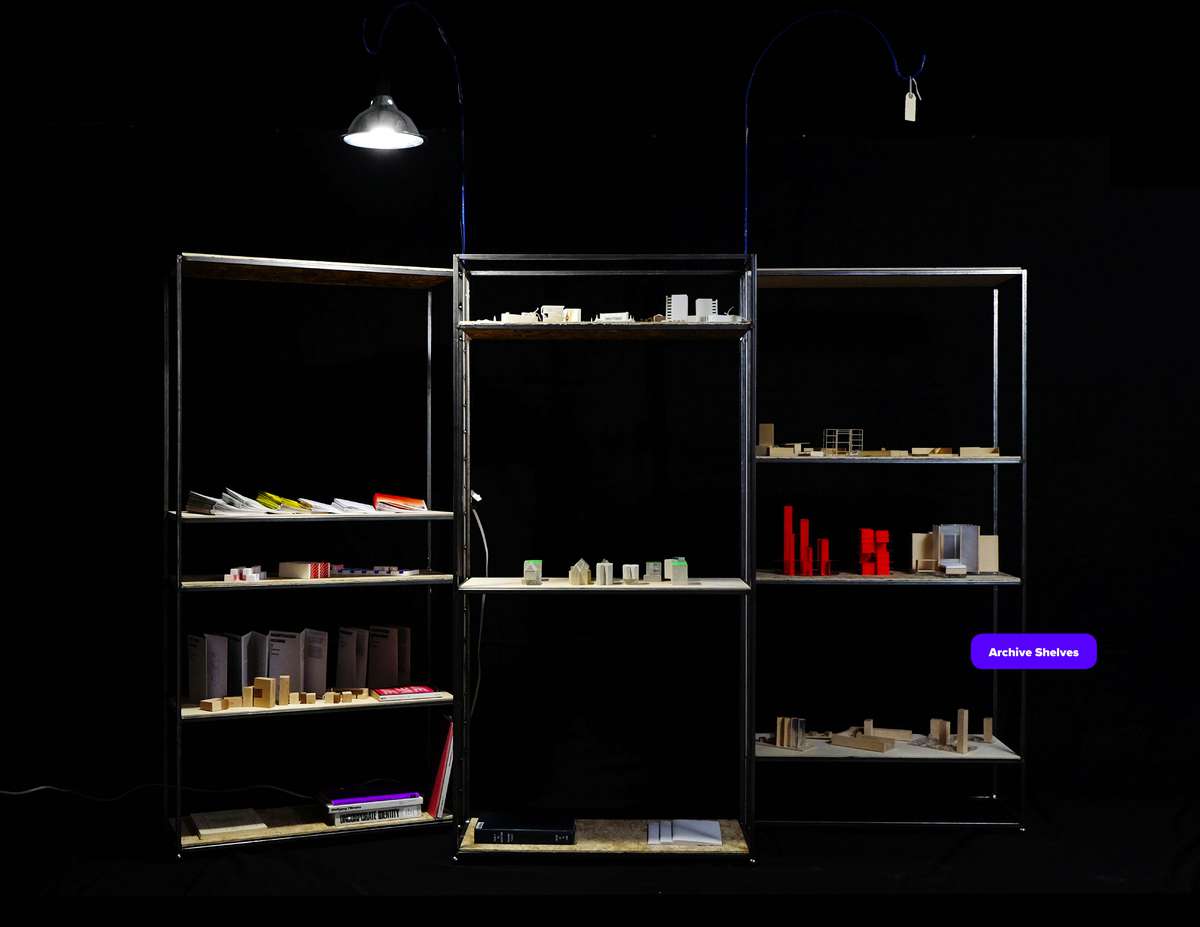
Achieve shelves of architectural propositions and precedent studies
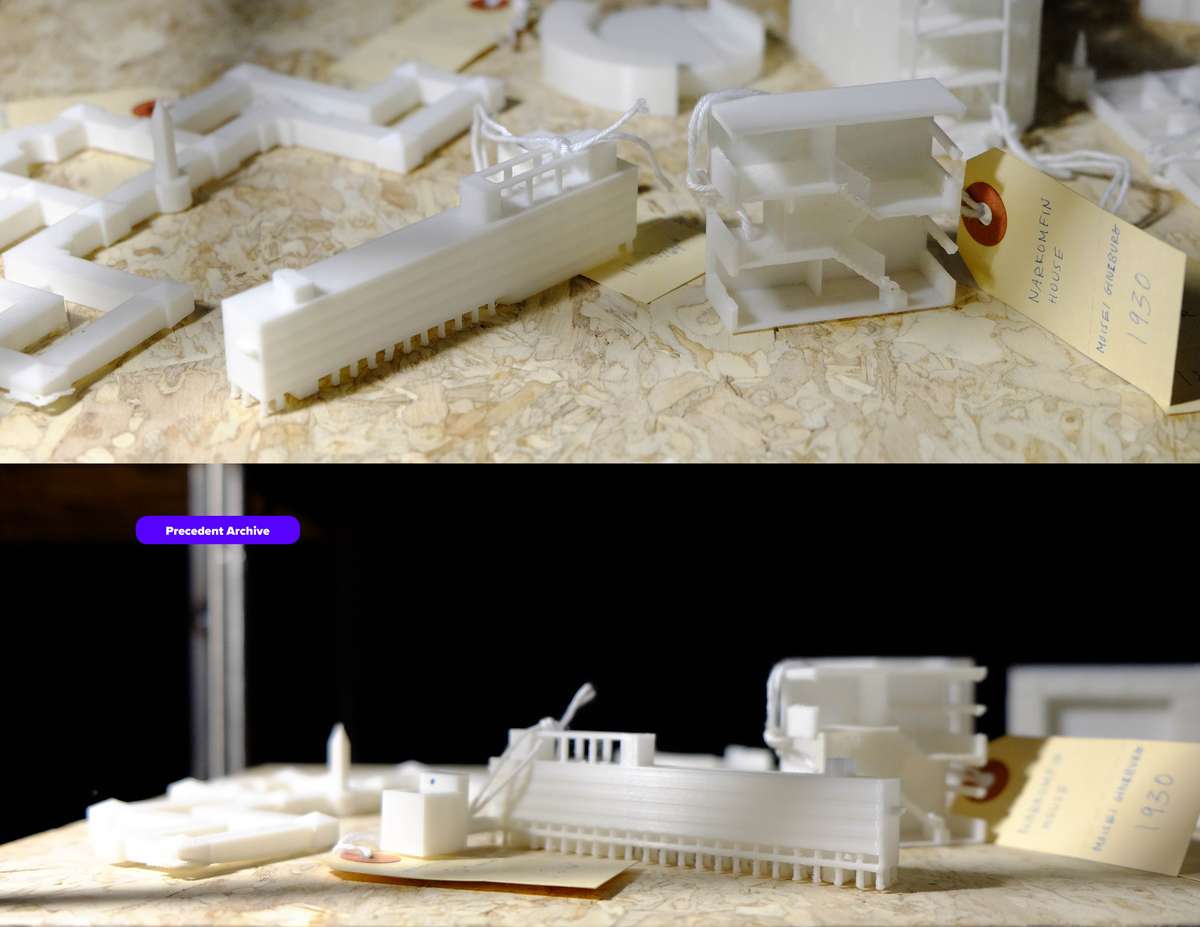
Precedent model archive
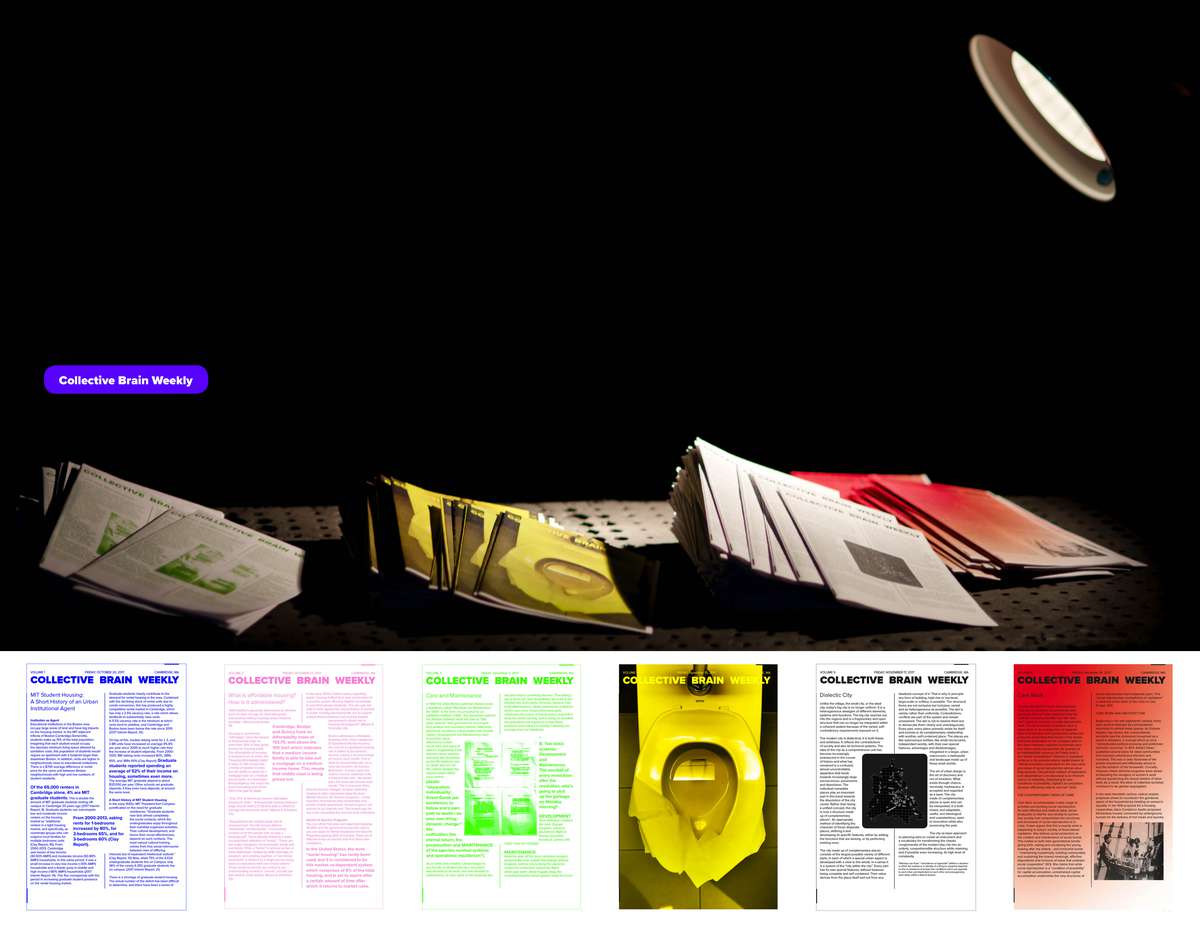
Collective Brain Weekly publications generated by the Collective Brain
Collective Brain
Collective Brain

- Systemic changes
The Collective Brain promotes a vision of a future architecture practice that is diverse, distributed and non-hierarchical. It’s a device for design research that archives and shares knowledge, as well as a model for a practice that challenges old exclusionary and unsustainable labor models. It organizes individual research inputs into a visual-spatial network that reveals unanticipated links between ideas, disciplines and people. This collective language is a tool that allows an unsanitized design process, fraught with the productive friction of many voices working together, and nurtures a multi-authored architecture that invites both participation and critique. It is also an archive for a changing body of knowledge whose form reconfigures as it grows, with the ability to filter,be confronted by the unexpected, and easily share findings through automated publishing.
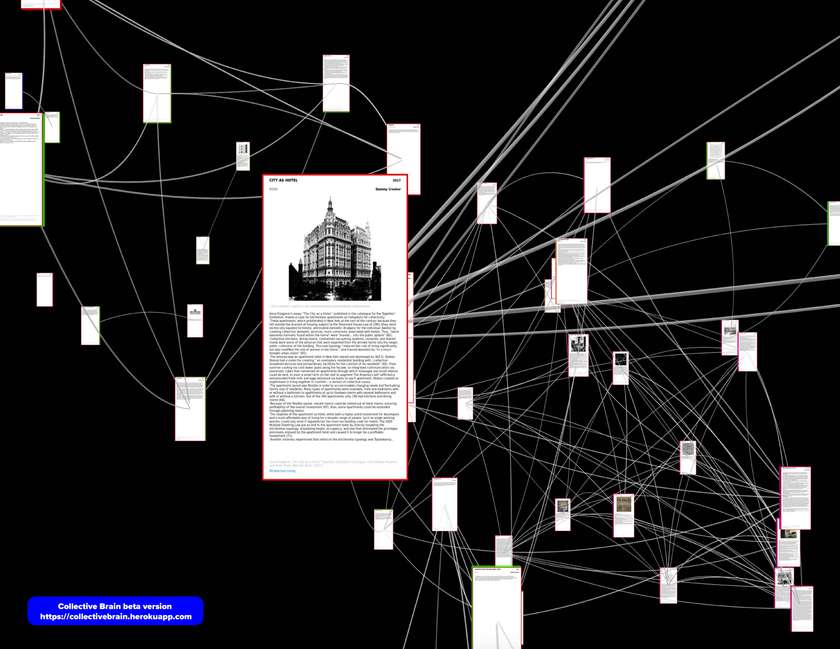
Collective Brain, beta version, https://collectivebrain.herokuapp.com
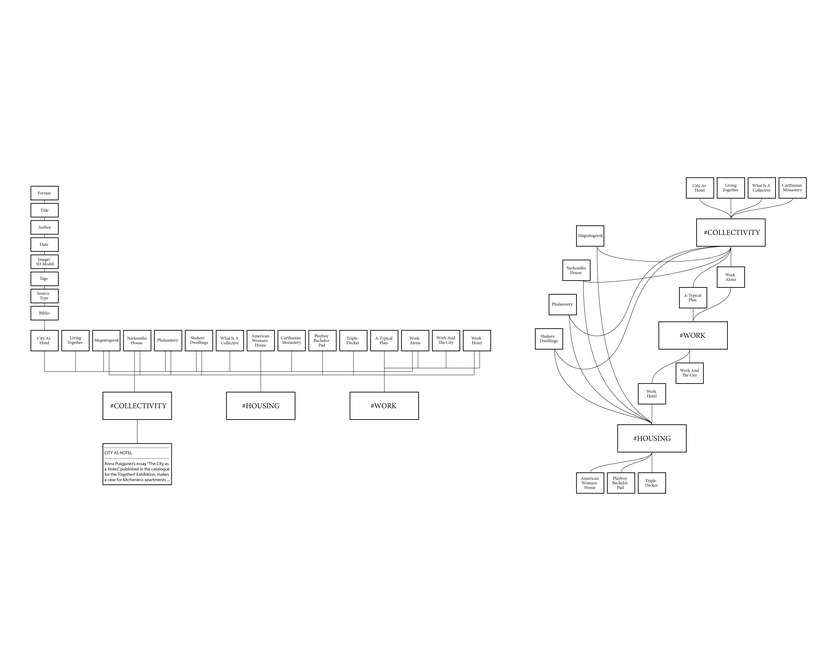
System diagram of Collective Brain
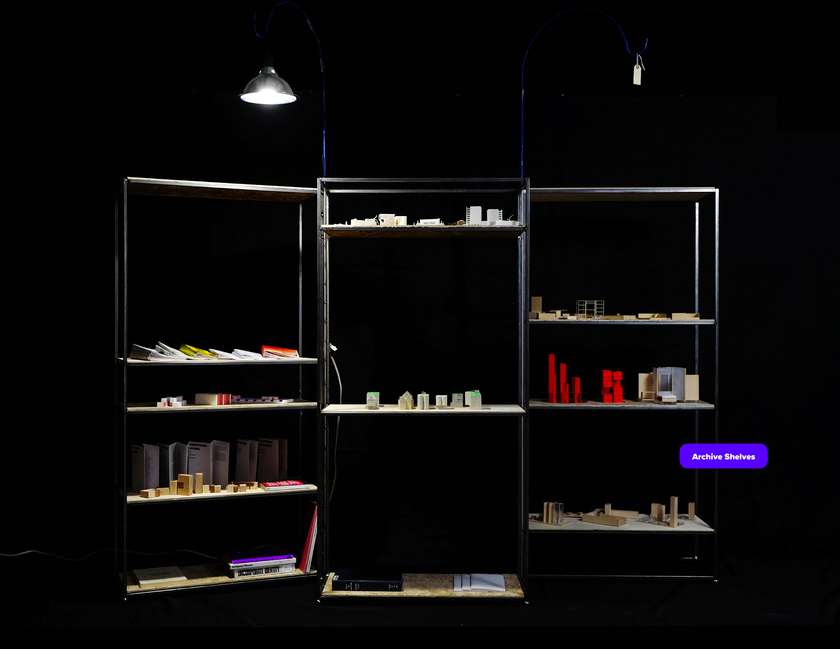
Achieve shelves of architectural propositions and precedent studies
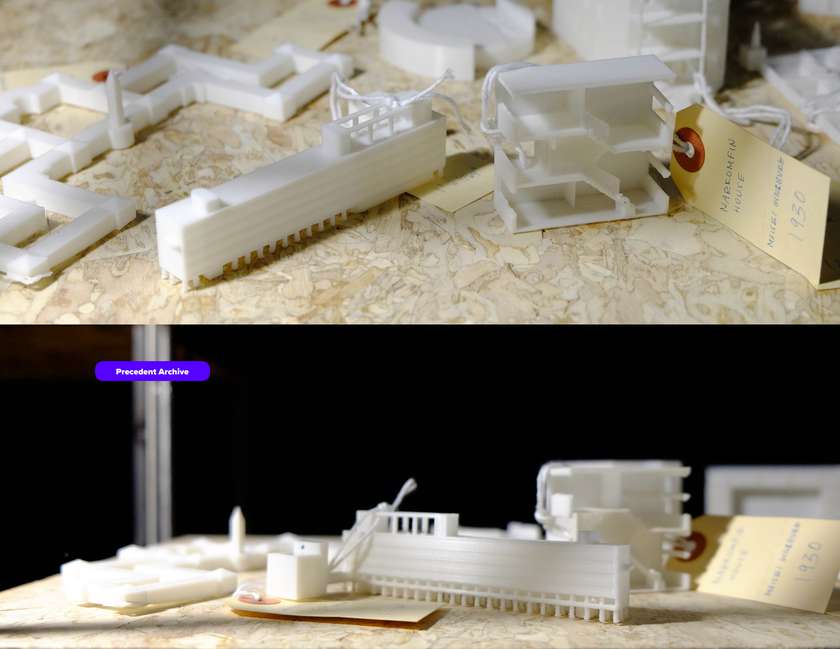
Precedent model archive
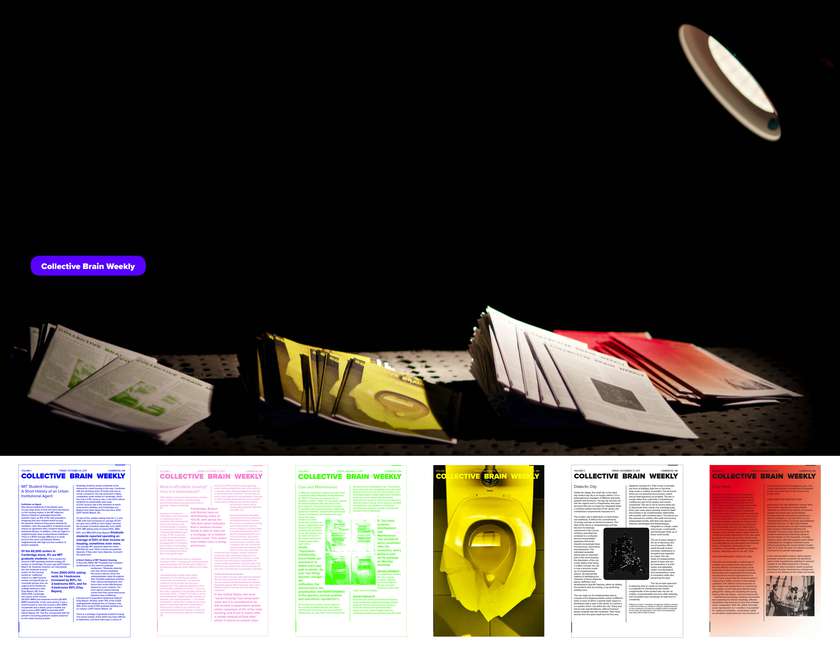
Collective Brain Weekly publications generated by the Collective Brain